$1.9m gold scam: Anas confessed to ‘being bought’ with $100k while ex-CID boss got $75k & prosecutor $5k to shield Baba Tunde – Judge
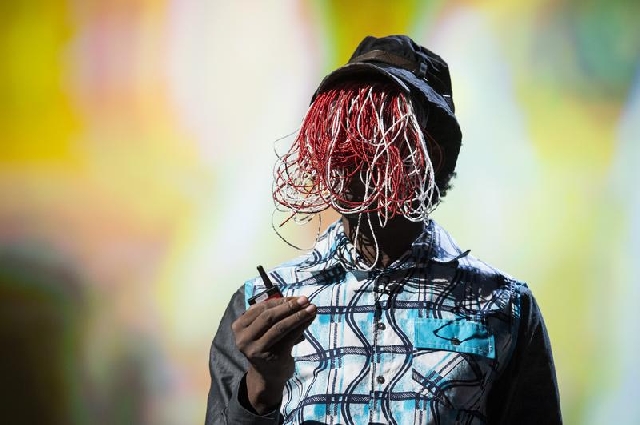 Anas Aremeyaw Anas
Anas Aremeyaw Anas
Justice Eric Baah, a Court of Appeal judge who recently dismissed investigative journalist Anas Aremeyaw Anas’ GHS25-million defamation suit against Assin Central MP Kennedy Agyapong, revealed in his lengthy judgment on Wednesday, 15 March 2023, that the Tiger Eye P.I. CEO, who, in his view, practices “investigative terrorism” and not “investigative journalism”, confessed on tape to being bribed with $100,000 by one Baba Tunde, one of the suspects in the $1.9-million gold scam saga, which never got aired by the journalists despite having investigated it, so the evidence could be manipulated to exclude the payer of the bribe.
Additionally, Justice Baah said in his judgment that one of the exhibits tendered in court, also captured Anas on tape confessing to giving a former Director-General of the Criminal Investigations Department of the Ghana Police Service, Mr Adu Poku, some $75,000 as bribe.
The journalist, who was the plaintiff in the defamation case in which he sought damages against Mr Agyapong for calling him names such as “blackmailer, corrupt, extortionist, criminal, evil and murderer” in the ‘Who Watches The Watchman’ documentary aired in 2018 on Net2 TV, a media house owned by the politician, to, ostensibly expose the alleged shady deals of the Tiger Eye P.I. CEO, also disclosed on tape, according to the judgment, that an amount of $5,000 was wired into the bank account of the prosecutor who handled the gold scam case, in order to shield Baba Tunde and “turn” the evidence on one Hafiz, who refused to cooperate with them.
Read Justice Eric Baah’s judgment in relation to the gold scam saga below, for which reason he determined that Mr Agyapong was justified in calling Mr Aremeyaw a “blackmailer, extortionist, criminal, and corrupt”:
Exhibit KOA1 begins with one Hafiz Abdallah, who appeared on Net 2 TV on 31 May 2018 to allege that the plaintiff took a bribe of $50,000 (fifty thousand dollars) to quash an investigation into a gold scum by the said Hafiz and others.
According to Hafiz, it was as a result of the bribe taken by plaintiff that he failed to publish the videos on that case.
The next part of the video is a conversation between plaintiff on one part, and Baba Tunde and Mubarak on the other part.
The conversation hovered around a gold scam involving a huge sum of 1.9 million dollars, with Baba Tunde, Mubarak and Hafiz Abdallah and others as suspects.
According to Mubarak, of the sum of $1.9 million, they were paid a total of $560,000.
This sum, he claimed, were shared with Hafiz, and “those at the airport and all other persons.”
Mubarak made it clear in the presence of the plaintiff that they were part of an international criminal gang.
Said Mubarak: “The guy who brought the business was from Cotonou. He is called Abbas but his business name in Cotonou is Kwame. That is the name he uses for business. He is not here.”
He told the plaintiff that one of the suspects, “Prince is not here, he is in Cotonou.”
Mubarak confessed his involvement in the crime in the following words: “We don’t hide anything. Actually, if it was 1.9, I can’t confirm. But me, I know I am part of the whole deal.”
He then proceeded to state how much was received, and how much each suspect, and their accomplices got.
The plaintiff and the two suspects then engaged in a lengthy conversation, in which they plotted on how they would contrive a story to scapegoat one Hafiz, who had refused to co-operate with the plaintiff by giving him money, and how they could tell their sweet story to the police, and also secure the proceeds of the crime in their bank accounts.
After this encounter, the plaintiff met the prosecutor in the gold scam case in what his lawyer said was a rehearsal for the trial.
Indeed, the early part of their investigation revolved around the evidence plaintiff had gathered about the suspects.
He showed the video on his encounter with the suspects and tried to explain the events to the prosecutor.
The conversation then changed from the suspects to money and the plaintiff and the prosecutor.
The plaintiff confessed to the prosecutor that he had been bought with $100,000.00. This is how the conversation went: ‘Prosecutor: Hmm, they have really been working and settling everybody. Anas: …his demeanour, 1.9 million dollars from where? Who did they take it from? Then he started telling me how the people came here and were working with them. So, at that time, they bought me with hundred thousand dollars because he is somehow related to me. Somehow. I don’t know how…?’
The prosecutor wanted to know who paid the money to plaintiff, and how much she was to receive, and how the evidence was to be skewed to scapegoat (Hafiz).
The following conversation ensued between the two: ‘Prosecutor: Is it the two of them? Anas: No, it was Baba Tunde. He now wanted to fight for himself. Prosecutor: Tell me the amount transferred to me. Anas: $5,000 (five thousand dollars) Prosecutor: We all want money, we all need money… Anas: Exactly. Prosecutor: That’s the reason why I had to know the evidence he had and then we turn it to suit the presentation you have in court’.
In a voluntary confession by the plaintiff that he had paid bribe to the Director General of the CID, this what the video says: ‘Anas: They have…by then Adu Poku was the CID boss. So, I met him and gave him seventy-five thousand dollars’.
The claim by plaintiff that the event in the office of the prosecutor, on the second part of the video was a rehearsal, turned out to be largely false.
The event indeed started as a rehearsal, but veered off into matters unrelated to the rehearsal.
It quickly degenerated into a strategy section on how to share bribes and sabotage the then pending criminal case on the gold scam.
Otherwise, how related was the rehearsal to the confession of plaintiff that Baba Tunde had bought him with $100,000.00, a claim which became proven by the exclusion of Baba Tunde from the charges despite his tape-recorded confession which was in the possession of the plaintiff?
How related was the rehearsal to plaintiff’s confession that he met the then Director General of CID, Ghana Police Service, and bribed him with $75,000.00?
And how related was the rehearsal to plaintiff’s confession that he had paid a bribe of $5,000.00 into the account of the prosecutor?
Plaintiff evaded the critical issues raised by his confession statements in exhibit KOA1 and hid under the shaky and porous banner of the rehearsal.
Even though the prosecution sought to tender a tape of plaintiff on the accused persons, there is no evidence of the actual copy that was to be tendered.
It could have been the same copy as in exhibit KOA1, but it could have been an edited and doctored version.
By plaintiff’s own account, he rested himself when the court overruled the application of the prosecution to admit the tape.
The tape then went into abeyance and was brought to the attention of the public only when defendant aired his “Who Watches Watchman.”
Had it not been for the efforts of the investigators of that piece and the defendant, Ghanaians and the world would never have become aware of that tape and the culprits therein.
The mantra of plaintiff repeated ad nauseum in our ears, and of which I take judicial notice is “Name, shame and prosecute.”
Pursuant to that, plaintiff has rushed to air audio-visuals on his investigations to the public, often at a fee (judicial notice).
Judicial notice is further taken of the fact that in some of the investigations aired to the public, the bribes collected involves thousands of cedis and or goats, yam etc. Refer to the investigation on judges dubbed: “Ghana in the eyes of God, epic of injustice”, cited by plaintiff’s counsel.
In the case under reference, the amount stolen was $1.9 million, most probably, the biggest crime by quantum that has been investigated by the plaintiff.
As mentioned above, the culprits confessed on tape and in the face of plaintiff, their involvement in the crime.
The suspects indicated that they are an international criminal gang operating between Ghana and Cotonou.
A tape covering the self-confession of the suspects in a gold scam involving $1.9 million and a cross-border gang with accomplices at the airport and other places, would have been explosive on the airways.
But the airwaves were kept silent by the plaintiff and his team.
In this case, the plaintiff forgot to name and shame the criminals by publicly airing the explosive video, as has been his tradition.
He, uncharacteristically deferred first, and not last, to the court. However, even when the court rejected the tape, and the case was truncated for lack of prosecution, plaintiff kept the tape under wraps.
His silence continued.
He kept mute from 2009 to 2018, when the tapes first hit the public space, courtesy the defendant.
That was not as a result of change of heart or policy, because plaintiff has continued to show tapes on investigations conducted by him.
What incapacitated the plaintiff from showing the tape to the public?
The answer is in the tape.
In the tape, Hafiz decoded the reason why the plaintiff refused to air the tape as was his tradition in other investigations.
Said Hafiz of the plaintiff’s conduct: “So, why didn’t you show the videos? You showed the custom officers, you showed the judges, but when it came to our time because he took the 50,000 (fifty thousand dollars), he didn’t show it. You understand where I am coming from? All that am trying to say to Ghanaians is that this guy is not correct. He is not a correct human being because he comes to do this thing, he goes to edit what he wants to add and minus what he wants-like any movie producer will do. That is exactly what he is doing. It is a movie that he is producing.”
The claim of Hafiz, when considered in the context of other events in the case, assumes the status of high credibility.
In the tape, plaintiff appeared to plot with Mubarak and Baba Tunde, on how to shield them and the other culprits and shift the blame onto Hafiz.
When plaintiff met the prosecutor in her office, the plot continued.
To that end, the prosecutor told plaintiff: “That’s the reason why I had to know the evidence he had and we turn it to suit the presentation you have to do in court.”
To “turn” evidence to suit plaintiff’s narration in court, was to bend the evidence, in breach of the law, and in violation of the ethics of prosecution.
As a prosecutor, you do not turn or bend one piece of evidence to suit the other. You present it as it is, even if it would be to the accused’s benefit.
The ethics of prosecution goes on to require that if a prosecutor has evidence which will benefit or exonerate the accused, and which evidence the accused person does not possess, the prosecutor must hand over that piece of evidence to the accused.
The up-quoted part of the conversation meant one and only one thing, that there was a plot between the plaintiff and the prosecutor to sabotage the trial.
In the court proceedings (exhibits KOA2/ F-series), the case began with Mohammed Hafiz Abdallah. Then an unnamed person was added. Later, the three persons appearing as accused persons were: Mohammed Hafix Abdallah, Mubarak Seidu and Prince Kingston Kwame.
Conspicuously missing was Baba Tunde, who plaintiff had captured on tape confessing to the crime.
Why was Baba Tunde left out? If he was left out by the prosecution without the knowledge of plaintiff, did the plaintiff petition the Attorney General for his inclusion, since he had his confession on tape?
The evidence before me amply proves that Baba Tunde was excluded from the charges through the machinations of the plaintiff, after receiving a bribe of $100,000.00 from Baba Tunde, and on grounds of their family relationship.
For the sake of emphasis, I will repeat the relevant aspect of the conversation between the plaintiff and the prosecutor on Baba Tunde: ‘Prosecutor: Hmm they have really been working and are settling everybody. Anas: “…his demeanour, 1.9 million dollars from where? Who did they take it from? Then he started telling me how the people came here and were working with them. So, at that time they bought me with hundred thousand dollars because he is somehow related to me. Somehow. I don’t know how…? Prosecutor: Is it the two? Anas: No, Baba Tunde. He now wanted to fight for himself’.
If plaintiff says that Baba Tunde, in fighting for himself, bribed him with $100,000.00, who else can say he didn’t?
True to the scheme, Baba Tunde who had confessed to a crime involving $1.9 milliom on a tape in the possession of plaintiff, was excluded from the charges.
The video of his confession was never shown to the public.
Bribery and corruption by and of public officers are a crime under section 239 (1) and (2) of the Criminal Offences Act, 1960 (Act 29). Section 239 (1) and (2) provides: “(1) Every public officer or juror who commits corruption, or wilful oppression, or extortion, in respect of the duties of his office, shall be guilty of a misdemeanour. (2) Whoever corrupts any person in respect of any duties as a public officer or juror shall be guilty of a misdemeanour.”
Corruption by and of a Public Officer, etc. has been explained in sections 240 and 241 of Act 29 as follows: “Section 240. A public officer, juror, or voter is guilty of corruption in respect of the duties of his office or vote, if he directly or indirectly agrees or offers to permit his conduct as such officer, juror, or voter to be influenced by the gift, promise, or prospect of any valuable consideration to be received by him, or by any other person, from any person whomsoever.
Section 241
A person is guilty of corrupting a public officer, juror, or voter in respect of the duties of his office or in respect of his vote, if he endeavours directly or indirectly to influence the conduct of such public officer, juror, or voter in respect of the duties of his office or in respect of his vote, by the gift, promise, or prospect of any valuable consideration to be received by such public officer, juror, or voter, or by other person, from any person whomsoever.
In criminal trials as aforesaid, a voluntary confession statement is admissible against the maker.
The confession statements relieved the defendant of the onus of proof to the standard of “beyond a reasonable doubt”, which is the requirement of proving an allegation of a crime in a civil trial.
The conclusion is that the defendant proved the criminal allegations against the plaintiff based on exhibit KOA1, beyond a reasonable doubt.
Plaintiff’s counsel sought to establish the accusation by theoretical arguments and logical deductions.
Source: Classfmonline.com
Trending News

IEAG Executive Secretary defends firefighters amid assault allegations
14:43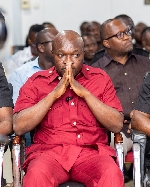
GJA President commends CMG founder, demands removal of GNFS PRO over journalist assault
15:25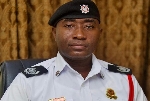
We did not assault Class FM reporter, we only seized his phone - GNFS
15:55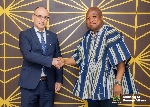
Ghana opens diplomatic talks with Ukraine to secure release of Ghanaian prisoner of war
20:57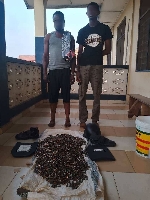
Police arrest 2 suspects for unlawful possession of ammunitions
10:06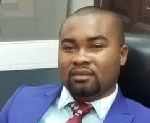
Vice-President Dr. Mahamudu Bawumia and the EMT failed to manage the economy effectively between 2022 and 2024-Dr. Razak Kojo Opoku
13:36
UK and Bank of Ghana host inaugural London-to-Accra Economic Growth Summit
15:06
Prophet Uche’s 2026 parliamentary prediction draws attention following death of Ayawaso East MP
13:37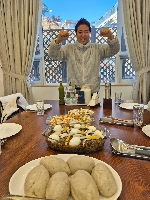
Kojo Choi: Ghana’s ambassador to South Korea welcomes New Year with banku in Seoul
20:40
PRINPAG President loses father
08:26




